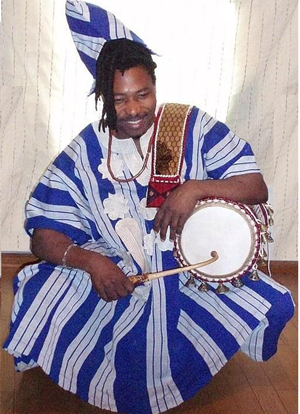|
 Don’t we all like movies made by Tunde Kelani? It certainly is not just because of the level of professionalism that is evident in his works; other Nigerian film makers like Tade Ogidan, Amaka Igwe, Odua Imasuen and lately Emem Isong and Jeta Amata have been said to have raised the standards a tad higher in an industry that places such obsessive emphasis on the economic yields of movie production over any artistic considerations(so much for the 'aesthetics of poverty'). Within the overriding philistinism in Nollywood, these individuals have managed to project a promising image of the industry. What makes Kelani’s movies different, however, involves a number of factors chief of which is creative interpretations and projections of culture -Yoruba culture in this instance- in his films, which reflects his appropriation of orality as performative energy. Don’t we all like movies made by Tunde Kelani? It certainly is not just because of the level of professionalism that is evident in his works; other Nigerian film makers like Tade Ogidan, Amaka Igwe, Odua Imasuen and lately Emem Isong and Jeta Amata have been said to have raised the standards a tad higher in an industry that places such obsessive emphasis on the economic yields of movie production over any artistic considerations(so much for the 'aesthetics of poverty'). Within the overriding philistinism in Nollywood, these individuals have managed to project a promising image of the industry. What makes Kelani’s movies different, however, involves a number of factors chief of which is creative interpretations and projections of culture -Yoruba culture in this instance- in his films, which reflects his appropriation of orality as performative energy.
In Kelani’s 1999 movie, Saworoide, and its sequel Agogo Ewo, 2002, Yoruba oral traditions are employed to allegorise the story of Nigeria’s socio-political landscape in the 1990s. A whole lot of factors interplay in these movies to underline the role orality can play in forging an indigenous film practice with recognizable universal dimension. I say ‘universal’ not without some awareness of its ‘literary’ implications in ‘nativist’discourse, but with the increasing villagisation of the world and its attendant cross-cultural dialogues it is necessary that artistic and cultural productions speak in their culture as well as to others as part of global cultural education. But Saworoide’s and Agogo Eewo’s messages are not ‘universal’ in the way Totsi’s, say, would: Kelani aims largely to speak through locally mediated experiences, through memory recognizable, through metaphysics- which some cultures might consider exotic- but ultimately to celebrate aspects of African history and culture and enlighten others about these continued
|
Commentaires